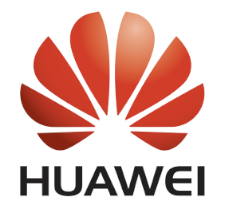Huawei, the world’s second largest telecom gear marker after Ericsson, said that its U.S. growth will be hindered this year by U.S. security concerns. But Bob Cai, the Chinese company’s vice president in charge of wireless-network marketing, told the Wall Street Journal that Huawei still expects its key wireless-network business to gain ground in Europe and Asia.
Huawei has been dealt two major setbacks in the U.S. over the past half-year. In October, a U.S. congressional report said that Huawei and ZTE’s “provision of equipment to U.S. critical infrastructure could undermine core U.S. national-security interests,” a claim that both companies disputed. Then last week, Sprint Nextel and SoftBank pledged not to use gear from Huawei after they merge.
Huawei is counting on other overseas markets, as well as its domestic market in China, for revenue growth. In 2011, Huawei’s wireless network business accounted for 45.91 billion yuan (about $7.4 billion USD), or 23 percent of the company’s total revenue of 203.93 billion yuan. Seventy percent of its group revenue is generated abroad and the company says that its biggest markets are in Western Europe and emerging Asian markets like Indonesia. In Europe, Cai told the Wall Street Journal that Huawei has “already built trust” with carriers.
Like smaller rival ZTE, Huawei is also pegging its domestic growth on China’s nascent LTE network. The country’s big three mobile carriers–China Mobile, China Telecom, and China Unicom–are all busy building out their LTE infrastructure. Together, the three companies will spend 345 billion yuan ($56 billion USD) on expanding their 4G networks this year. Cai told the Wall Street Journal that last year Huawei made $1 billion in revenue from its LTE network business, and that the company expects that figure to double to about $2 billion this year.
Overall, Huawei expects its mobile infrastructure unit to grow by at least 10 percent this year, after 11 percent growth in 2012. Despite the added challenge of U.S. security concerns, Huawei’s competitors like Ericsson have also had tough time over the past few years thanks to the poor economic climate. For instance, Ericsson’s 2012 group revenue was 227.78 billion Swedish kronor ($35.1 billion USD), almost flat when compared with its 2011 revenue of 226.92 billion kronor.
